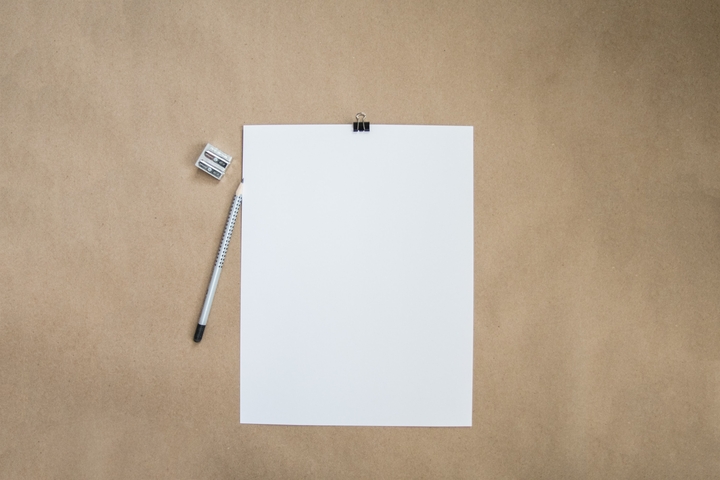Some Crucial Considerations for Dissertation Writing
The goal of the Dissertation or Thesis is to produce an original research paper on a topic that has been narrowly defined. While a thesis is typically connected with master's degrees, a dissertation is typically the most autonomous work in undergraduate programmes. However, both words can be used interchangeably and may differ between nations and universities.
A dissertation or thesis is probably the lengthiest and most challenging assignment a student has ever taken on. It can, however, also be a very satisfying piece of work because, in contrast to essays and other tasks, the student has the freedom to choose a subject of particular interest and work independently.
A variety of planning and research abilities, which will be very useful in your future work and inside organisations, are required when writing a dissertation. The dissertation topic and questions should be narrow enough that you can gather all the required information in a manageable amount of time, typically six weeks for undergraduate programmes.
Additionally, you ought to pick a subject that you are already familiar with because this will give you a point of reference for your literature search as well as some knowledge of and interest in the underlying theory.
General Structure
Dissertations typically adhere to a structure similar to an academic paper for journal publication. The pages that follow go through each of these in more detail and offer thorough instructions on how to prepare and write each one:
- Research Proposal
- Introduction
- A Literature Review
- Methodology
- Results and Discussion
- Conclusions and Extra Sections
The study question you intend to investigate should be stated in the Introduction and/or Research proposal, along with some suggestions for potential approaches. It will be pretty rudimentary if you submit it as a research proposal because you won't have had time to thoroughly comb through the literature, but it should at least have some theoretical support and a clear understanding of why you want to investigate this problem;
Outcomes and Discussion should outline what you actually did, the results you obtained, and explain these in relation to the literature. The Literature Review and the Methodology are frequently merged because what you want to do should flow from and complement the prior literature.
The results of many years of study and the pinnacle of your PhD are in your thesis. Your supervisor, committee, and fellow graduate students are going to be your finest dissertation advisors, but here are some pointers to get you started:
-
Establish a schedule.
By setting yourself completion dates, you can determine what percentage of pages you must write each day to achieve your deadlines for each chapter or part. Then make an attempt to establish a writing routine. You can settle on work schedules that fit the times you feel most productive. Similarly, if you actually find your groove during the evening shift, adjust your hours so you spend most of your writing time during that period.
-
Just start
You've organised your writing, so it is time to start typing. You'll probably think of a million excuses to put off writing, but unless you begin, you will not know whether or not they are valid. Writing your argument call in its entirety is the best method to refine it.
-
The initial version isn't the final version.
When working on a project of this scale, it's imperative to remember that your initial draught is not the final draught. The argument and language don't have to be perfect the first time around. There is a lot of editing and rewriting involved in the writing process. Simply begin writing and editing as you go.
-
Be adaptable.
Even the best writers occasionally experience writer's block, which could end up in you missing a deadline. Simply adjust your schedule accordingly and keep on writing if you miss a deadline. Another piece of advice is to set all of your deadlines a little earlier than necessary so that you have some breathing room in case you need to push one back.
-
To create the introductions in Last
Skip the introduction; it's easy to get bogged down in it. Write the chapter's body first. When you're done, you will be aware of what you've actually introduced and be in a better position to collect your ideas. This suggestion also applies to the dissertation's introduction because it'll probably change as you work on it over the course of several months.
-
Move the body.
Similar to this, if you grind to a halt on a certain chapter portion, persist and come back to it later. You'll easily skip a challenging area and spend your time more effectively writing a simple section as long as you have stated your thesis and approach for the chapter. After making progress on an "easy" portion, you'll feel more assured once you go back to the challenging paragraphs.
-
Obtain feedback quickly.
Depending on your supervisor's tastes, this advice may change a little. If at all possible, communicate with them frequently and early about your efforts. They will aid you in spotting problems earlier and negotiating any tricky situations. Making little adjustments along the way will also save you from having to totally rewrite a chapter as the due date approaches.
-
Search for yourself.
Just because you're working on your dissertation doesn't mean you should disregard your health. When you're in a good physical and psychological state, writing comes more naturally. Confine oneself to eating healthily, getting adequate rest, and remaining active. Even a brief neighbourhood stroll will raise your heart rate and promote mental clarity.
-
Make Time for Yourself
While you're working on your thesis, writing is going to be your full-time job, but that does not mean you have to write constantly. You'll exhaust yourself if you consistently work past your customary hours. Once you need a break, take one. Your friends are going to be understanding if you miss some social gatherings, especially if you will not be able to enjoy them because of stress.
-
Use a reference manager
There are plenty of references in dissertations, so you do not want to have to hunt them all down at the conclusion. You'll easily add citations in any format by using a reference manager like Endnote or Zotero, which can help you keep track of all the articles and books you might need to quote.
-
Conclusion
The key research topic should be succinctly addressed within the dissertation conclusion, leaving the reader with a transparent understanding of your main contention. Finish your dissertation by summarising what you accomplished and the way you did it. Within the conclusion, there are frequently suggestions for future study or application.
Griantek provides medical thesis writing, engineering thesis writing, science thesis writing, and other services. Our crew continually prioritises excellent quality, domain conformity, and giving clients work that they are completely delighted with. With the assistance of Griantek's dissertation writing services, you can submit your work with assurance knowing it is free of grammatical errors and flows naturally from beginning to end.



